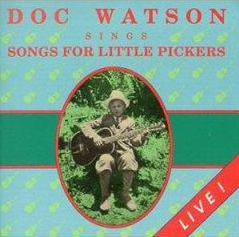 |
| "Doc" Watson 1923 -2012 |
Doc Watson, AKA Arthel Lane Watson, passed away today at the age of 89. Doc was born on March 3, 1923, in Deep Gap, NC. Blind by the age of two, Watson used his musical talent to support himself and his family while introducing a new generation of Americans to the traditional music of the Appalachian region. Doc, one of my musical heroes, was "discovered" in the early1960s by Ralph Rinzler who was in the neighborhood to make some recordings of Clarence Ashley. Rinzler asked Ashley if there were any other talented traditional musicians in the area. At the time Doc was playing electric guitar in a rockabilly band; he didn't even own an acoustic guitar. Nevertheless, Doc impressed the visiting folklorist, on a borrowed acoustic guitar, with his repertoire of traditional folk songs and early commercial country music. Doc Watson went on to become one of the most popular traditional artists of the 20th century, and one of the most influential flat picking guitarists of all time.
My first exposure to the playing of Doc Watson was a happy accident. It was 1972 and Doc was the opening act for the Paul Butterfield blues band. I was awed by the playing of this unknown (to me) blind country gentleman. Shortly after seeing Doc perform live, I picked up the, now classic, LP "May the Circle Be Unbroken" and I became more familiar with the playing of this exceptional musician. His album of children's music, "Songs for Little Pickers," provided much of the material I used to entertain, and, hopefully, inspire my children to have a life long appreciation of traditional American folk music. Doc's incredible flat picking was an inspiration to acoustic guitar players around the world, while his elegantly simply banjo technique demystified and provided the foundation for my own clawhammer banjo playing.


